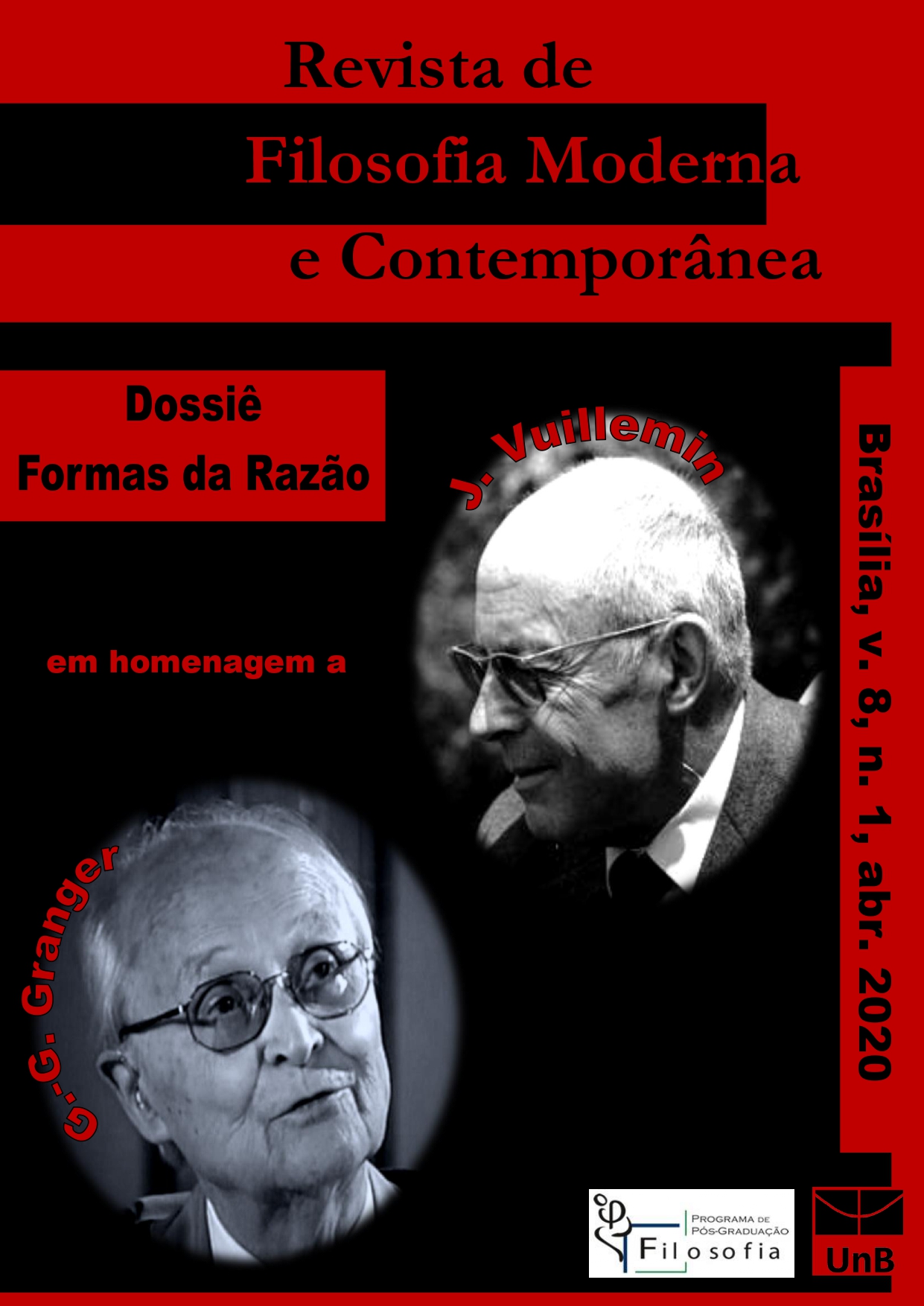Question-Answer Semantics
DOI:
https://doi.org/10.26512/rfmc.v8i1.32835Keywords:
.Abstract
The present paper deals with a special kind of many-valued semantics: Question-Answer Semantics, in which logical values are products of questions about semantic predicates (‘true’, ‘false’, etc.) and corresponding answers (‘yes’, ‘no’, etc.). It purports to clarify some di_culties related to what is meant by basic speech-acts like assertion and denial. Deep disagreements occur whenever any two speakers disagree about the meaning of the words they use. In the special case of truth-values, Frege took these as the referents of propositions that are classes of sentences accepted (‘true’) or rejected (‘false’). Starting from this usual depiction of truth and falsehood, a general algebraic framework ARn/m is proposed in order to systematize the use of truth-values within a dialectical perspective of logic. A special attention is paid to two pseudo-speakers radically opposed, namely: Heraclitus, and Nagarjuna, according to whom truth-values refer to everything and nothing, respectively. In the end, a dialectical (pseudo-Hegelian) negation is sketched as a very peculiar function, namely: as an ontological object-forming operator, which is similar to the arithmetic successor-forming operator Sn+1(x) applied to integers and also matches with a generalized theory of truth-values as Millian or Kripkean proper names.
Downloads
References
BALCEROWICZ, P. “Do attempts to formalize the syadvada make sense”. Article presented at the 11th Worskhop of Jain Studies: Jaina Scriptures and Philosophy, SOAS, 1-51. London, 2009.
BERNAYS, P. “Axiomatische Untersuchungen des Aussagen-Kalkuls der ‘Principia Mathematica”’, Mathematische Zeitschrift, Vol. 25 (1926): 305-20.
DUBOIS, D. “On Ignorance and Contradiction Considered as Truth-values”, emphLogic Journal of the IGPL, Vol. 16 (2008): 195-216.
GANERI (2002). “Jaina Logic and the Philosophy Basis of Pluralism”, History and Philosophy of Logic, Vol. 23 (2002): 267-281.
LORENZEN, P. & Lorenz, K. Dialogische Logik. Darmstadt: Wissenschaftliche Buchgesellschaft (1978).
PRIEST, G. “Hypercontradictions”, Logique et Analyse, Vol. 107 (1984): 237-243.
PRIEST, G. “The Logic of the Catuskoti’ ’, Comparative Philosophy, Vol. 1, No. 2 (2010): 24-54.
RÜCKERT, H. “Logiques dialogiques ‘multivalentes’”, Philosophia Scientiae, Vol. 8(2004): 59-87.
SCHANG, F. “A 4-valued Logic of Strong Conditional”, South American Journal of Logic, Vol. 3(1) (2017): 59-86.
SCHANG, F. “A Generalized Referential Theory of Truth-Values”, in Rationality in Action: Intentions, Interpretations and Interactions, HSE Moscow Publication, Saint Petersburg, 2015: 157-178.
SCHANG, F. “An Arithmetization of the Logic of Oppositions”, in The Square of Opposition: A Cornerstone of Thought, J.-Y. BÉZIAU & G. BASTI (ed.), Birkhäusel, Basel, 2016: 215-237.
SCHANG, F. “Eastern Proto-logics”, in New Directions in Paraconsistent Logics, BÉZIAU J.-Y. & CHAKRABORTY, M. & DUTTA, S (eds.), Springer Proceedings in Mathematics and Statistics, 2016: 529-552.
SCHANG, F. “Questions and Answers about Opposition”, in New Perspectives on the Square of Opposition, BÉZIAU, J.-Y. & PAYETTE, G. (eds.), Peter Lang, Bern, 2011: 289-319.
SCHANG, F. “Two Indian Dialectical Logics: saptabhangi and catuskoti”, in Studies in Logic: Logic and Philosophy Today, Vol. 29, GUPTA, A. & van BENTHEM, J. (eds.), 2011: 45-74.
SHRAMKO, Y. & WANSING, H. “Hypercontradictions, Generalized truth values, and Logics of Truth and Falsehood”, Journal of Logic, Language and Information, 15 (2006): 403-424.
SUSZKO, R. “The Fregean axiom and Polish mathematical logic in the 1920’s”, Studia Logica, Vol. 36 (1977): 377-80.
WANSING, H. & BELNAP, D. “Generalized truth-values. A reply to Dubois”, Logic Journal of the IGPL, Vol. 18 (2010): 921-935.
Downloads
Published
How to Cite
Issue
Section
License
Copyright (c) 2020 Journal of Modern and Contemporary Philosophy

This work is licensed under a Creative Commons Attribution-NonCommercial-NoDerivatives 4.0 International License.
Copyright for articles published in this journal is retained by the authors, with first publication rights granted to the journal. By virtue of their appearance in this open access journal, articles are free to use, with proper attribution, in educational and other non-commercial settings.


